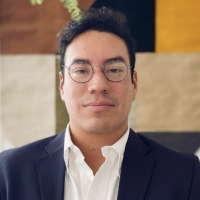
If someone had told me a year ago that as a human rights lawyer litigating complex and often challenging cases in Mexico, I would advocate for the legal certainty, otherwise known as the predictability, of the judicial system, I would be incredulous.
Yet, here we are witnessing human rights lawyers, NGOs, social movements, and communities thrown into an unwinnable dilemma they have not chosen: (1) Advocate for the defense of the existing judicial institutions that are captured by economic and political interests or (2) Embrace the need for significant judicial reform, even if it comes at a high cost. The cost is legal uncertainty.
These dilemmas are common in Mexico. Our country, with major levels of impunity and deadly conditions for human rights defenders, usually cannot afford to choose radical solutions when the lives and integrity of activists are at stake. Changes are instead rather incremental. In human rights litigation, especially after the 2011 human rights constitutional reform, NGOs and communities file Amparo lawsuits with the expectation that certain small changes can happen.
The challenge remains that despite the “judicial career system” and the Federal Judiciary Council (CJF) in place, most decisions rule on dismissing cases based on procedural issues, incentivizing quantity over quality in inaccessible legal proceedings. Legal judgments advancing human rights standards are the rare exception.
There have been a few outlying progressive rulings by federal courts that were achieved through strategic litigation by social movements, communities, and NGOs. Recent legal advances have included abortion rights and marriage equality, free prior and informed consent for indigenous peoples, and environmental rights in the socioeconomic and cultural rights field. Nevertheless, these litigations face great challenges upon adjudication due to the lack of public opinion and government support.
Under these challenges, there is a need for fundamental transformation, and this administration had the opportunity to advance a radical change in the judiciary. Instead, the judicial reform promoted by the Executive branch is a lost opportunity, for only increasing the deficiencies and distortions of the system. The amendment fails to address the problematic issues identified in human rights litigation and universal access to justice.
The approved reform will likely shrink civic space. Civil society organizations, social movements, and communities engaging with judicial institutions will now face more significant uncertainty. After implementing the popular election mechanism, judicial officials may become further co-opted politically or economically and enter positions with less judicial expertise. In this scenario, more significant challenges will be to advance social and human rights demands.
Newly elected judges could seek public approval through their decisions, which could signify improved access to justice, especially if addressing demands for social change. However, this change is more likely to happen only where there is greater public scrutiny of their performance, namely with the Supreme Court and the federal judiciary. At the state level, the election system will likely have poor outcomes due to weak judiciaries and a lack of institutional transparency.
To give an example of the latter: Indigenous human rights defenders Kenia Hernandez and Pablo López Alavez are currently in prison due to political and economic interests embedded in prosecutors and state-level criminal courts. This corrupt dynamic could instead exacerbate under judicial reform through the increased risk of unskilled and colluded judicial officials.
It is evident that highly inefficient justice system agencies, such as federal and local prosecutors or the Agrarian Tribunals (crucial to advancing many claims brought by Indigenous and peasant communities), remain untouched by the reform.
The resulting question is: What will happen if the demands for social justice remain unfulfilled by the judiciary and the federal government at large?
NGOs, social movements, and communities that work on socioeconomic and cultural rights in Mexico remain a resilient ecosystem, and this new scenario will not deter their work. However, amid greater legal uncertainty, social actors may begin seeking offshore justice. This prospect, however, is not beneficial for anyone and is challenging and inaccessible for many organizations.
The reform poses more significant risks beyond human rights and a definite legal risk to the private sector. Economic actors, including foreign companies, could be given carte blanche for conducting business operations that result in human rights violations, receiving no judicial oversight. In such cases, affected communities and accompanying NGOs will likely seek justice outside Mexico.
Amid corporate human rights due diligence growth, Mexican NGOs and local communities have already taken the initiative to pursue justice outside of Mexico and hold transnational corporations accountable. Affected communities have resorted to foreign law with extraterritorial reach to confront human rights violations. For example, ProDESC submitted the first legal claim ever brought by an indigenous community from the Americas against a French corporation for its actions and omissions in Mexico.
In sum, the judicial reform will likely not lead to a safe, legal environment for human rights litigation amid increasing legal uncertainty, nor will it provide a blank check for the business sector. Instead, Mexican human rights actors will look strategically to the United States-Mexico-Canada Agreement´s (USMCA) Rapid-Response Mechanism (RRM) or, more broadly, foreign and US jurisdictions for legal remedies, such as in the recent Chiquita Brands verdict.
If the future of the justice system in Mexico is to be taken seriously, all influential stakeholders should begin acting now. There should be a collective call to (1) Demand a reform implementation, in line with applicable international standards, that limits the political or economic interference in the election of judges; (2) Create secondary legislation that promotes legal access for social movements and indigenous communities; and (3) Put in place mechanisms for effective professionalization and qualitative evaluation of judicial officials (including elected judges).
The need is far too important—the realization of human rights relies largely on the integrity and transparency of the judicial system.
Views do not necessarily reflect those of ProDESC.
Author

Explore More
Browse Insights & Analysis
Wilson Center Fellows on the 2026 State of the Union Address


